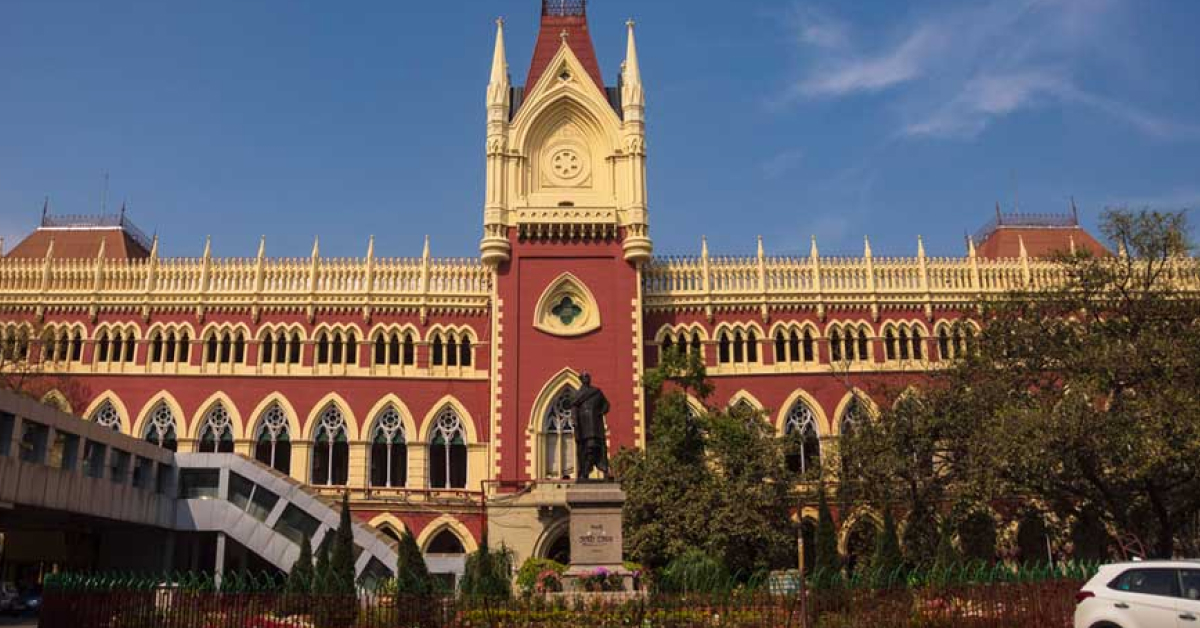Case Overview
The case revolved around a hire-purchase agreement dated October 21, 2020, between Versatile Construction, a proprietary concern engaged in construction and transportation, and Tata Motors Finance. Under the agreement, Versatile Construction financed a vehicle purchase for Rs.42,16,095. Despite making partial payments totaling Rs.28,23,796, the appellant defaulted on the remaining Rs.13,92,299.
Invoking the arbitration clause in the agreement, which designated Mumbai as the seat, Tata Motors Finance initiated arbitration proceedings. Despite receiving notice, the appellant chose not to participate, citing objections to the arbitrator under Section 12(5) of the Act. Consequently, an ex parte award was passed on September 9, 2024, in favor of Tata Motors Finance.
Seeking to challenge the award, the appellant filed an application under Section 34 of the Act in the Calcutta High Court. The single judge dismissed the application, stating that the court lacked territorial jurisdiction. The appellant then appealed the decision.
Key Legal Issues
The court’s analysis focused on two key questions:
- Whether the Calcutta High Court or City Civil Court had jurisdiction under Section 34.
- The implications of Mumbai being designated as the arbitration seat.
Court’s Observations
In dismissing the appeal, the division bench affirmed that the arbitration agreement explicitly designated Mumbai as the seat, granting exclusive jurisdiction to courts in Mumbai. Justice Soumen Sen observed:
“The arbitration clause explicitly states that arbitration shall be held in Mumbai. In the absence of any contrary indication, Mumbai must be construed as the seat, not just the venue, for arbitration. This Court, therefore, cannot assume jurisdiction over the matter.”
The court referred to landmark precedents such as Bharat Aluminium Co. v. Kaiser Aluminium Technical Services Inc. (BALCO), which clarified that the “seat” of arbitration determines the courts with supervisory jurisdiction. It also cited the BGS SGS SOMA JV v. NHPC Ltd. decision, emphasizing:
“When a seat is designated, it amounts to an exclusive jurisdiction clause. Courts at the seat alone have jurisdiction to entertain any challenges against the arbitral award.”
The judgment further reiterated the distinction between “seat” and “venue,” with the latter being a place chosen for convenience and the former denoting supervisory jurisdiction. The court noted:
“The term ‘seat’ carries far more weight than ‘venue’ and is critical in determining jurisdiction. In this case, the absence of any contrary clause reinforces that Mumbai is both the seat and the venue.”
Rejection of Fraud Claims
The appellant also argued that the loan agreement, forming the basis of the arbitral award, was fraudulent. Addressing this, the court highlighted the limitations of judicial intervention under Sections 34 and 37:
“Fraud claims must be evaluated within the jurisdictional framework defined under Section 34. Since Mumbai is the agreed seat, this Court cannot entertain such challenges.”
Moreover, the bench noted that the appellant’s voluntary absence from arbitration proceedings did not invalidate the award. As the judgment pointed out:
“The appellant chose not to participate despite receiving notice. An ex parte award holds equal validity as a contested one.”
Key Precedents Referenced
The court relied on several landmark rulings to substantiate its findings:
BALCO (2012): Established the principle of exclusive jurisdiction for courts at the seat of arbitration.
BGS SGS SOMA JV (2020): Clarified that a designated “venue” is presumed to be the “seat” unless there are clear indications to the contrary.
Mankatsu Impex Pvt. Ltd. v. Airsual Ltd. (2020): Highlighted the importance of other clauses and party conduct in determining the seat.
Significance of the Judgment
This ruling underscores the importance of precise drafting in arbitration agreements, particularly with respect to seat designation. It reaffirms party autonomy as the cornerstone of arbitration and minimizes jurisdictional ambiguities that could undermine the process.
By reiterating the supervisory authority of courts at the seat, the judgment aligns with international standards, bolstering India’s reputation as a robust arbitration hub. It also serves as a cautionary tale for parties failing to engage in arbitration proceedings, emphasizing that procedural defaults will not invalidate awards.
The Calcutta High Court’s decision in Versatile Construction is a crucial reminder of the binding nature of arbitration clauses and the limits of judicial intervention. By upholding the principle of seat jurisdiction, the court has reaffirmed its commitment to strengthening arbitration as an effective alternative to litigation in India.
Read The Judgment Here
keywords: arbitration jurisdiction, Section 34 Arbitration Act, arbitration seat, Mumbai arbitration, Versatile Construction, Tata Motors Finance

